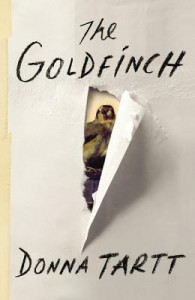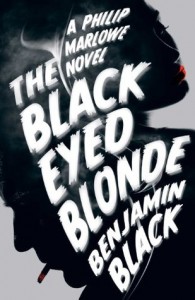 Title: The Goldfinch (Goodreads)
Title: The Goldfinch (Goodreads)
, 2013
Pages: 771
Buy: Amazon, Book Depository, Kindle (or visit your local Indie bookstore)
Carel Fabritius was a talented Dutch painter who was considered Rembrandt’s most gifted pupil. His paintings often featured delicately lit subjects against a light coloured background. He moved away from Rembrandt’s renaissance focus and developed his own painting style, with a strong interest in the technical. In 1654 he was injured in The Delft Explosion; 30 tonnes of gunpowder exploded destroying most of the city. Fabritius soon died from his injuries at the age of 32. Possibly one of the last paintings he ever painted, The Goldfinch depicts a goldfinch (a popular pet of the time) on light background. This piece shows his control over a heavily loaded brush as well as demonstrates his interest in lighting and texture.
Donna Tartt’s new novel The Goldfinch tells the story of Theo Decker, who survived a terrorist attack on a New York museum. Moments before the explosion his mother was pointing out Fadritius’ painting and telling Theo why she loved it; in all the confusion Theo manages to take the painting. Orphaned and alone, Theo struggles to find his place in this world while also trying to avoid being taken by the city.
While The Goldfinch is essentially a coming of age story, there are some interesting social observations being played out with the help of the stolen painting. On one hand, the painting represents Theo’s love for his mother and his need to hang on. I also feel that the painting represents that part that you keep hidden from the world; the secrets and shames that you tend to think will destroy friendships if revealed. This also serves a purpose when it comes to Theo’s friendship with Boris further in the novel.
While this is a novel about art and its seedy underbelly, I found myself a little disappointed in the lack of art history, art forging or art heists (technically there is a heist but that wasn’t thrilling). When I discovered my love of literature and learning, I also discovered an interest in art and art history, an itch that I’ve not scratched. I was hoping that Tartt’s novel would give me both entertainment and art history lessons but I was left disappointed. I expected Desperate Romantics but all I got was a bulky Catcher in the Rye.
I’m not saying that I didn’t like The Goldfinch, my expectations for the novel was different to what I got. Donna Tartt spends a lot of time looking at the idea of terrorist attacks and the lasting effects they have on the families of the victims and survivors. This grief serves as a baseline for Theo throughout the novel. Often it can be forgotten about but then you catch glimpses of the scars that remain and while they don’t justify his behaviour it really serve as evidence of the emotional rollercoaster he is stuck on. Tartt’s character development is the key to this book; she has created richly complex and flawed characters that feel so real. Theo, in particular, serves as both the narrator and protagonist; his voice throughout the novel manages to be both direct and reflective.
Donna Tartt’s The Goldfinch is complex but over padded; there is a lot that could be cut out to make this a shorter book. I can appreciate the way she captured the life of Theo Decker; making this a sweeping saga, packed with emotion and growth, still would be achievable with a hundred or more pages removed. This is a tragicomedy in every sense of the word but my biggest problem was that there were some situations where things resolved themselves a little too conveniently; it happens but not that often.
In the end, I found myself sitting on the fence with The Goldfinch. On one hand the characters and development of this novel was spectacular. The other hand is the fact my initial expectations weren’t met and the novel dragged on too much. I know that expectations should never get in the way of a good book and my head is telling me that I should jump on the bandwagon, however my heart just isn’t in it. I’ve heard good things about The Secret History but I have reservations about it now.

 Title: Big Bad Wolf (
Title: Big Bad Wolf ( Title: The New York Trilogy (
Title: The New York Trilogy ( Title: The Yellow Papers (
Title: The Yellow Papers ( Title: Breakfast at Tiffany’s (
Title: Breakfast at Tiffany’s ( Title: Middlesex (
Title: Middlesex ( Title: The Black-Eyed Blonde (
Title: The Black-Eyed Blonde ( Title: By Blood We Live (
Title: By Blood We Live ( Title: Alif the Unseen (
Title: Alif the Unseen ( Title: The Gospel of Loki (
Title: The Gospel of Loki (